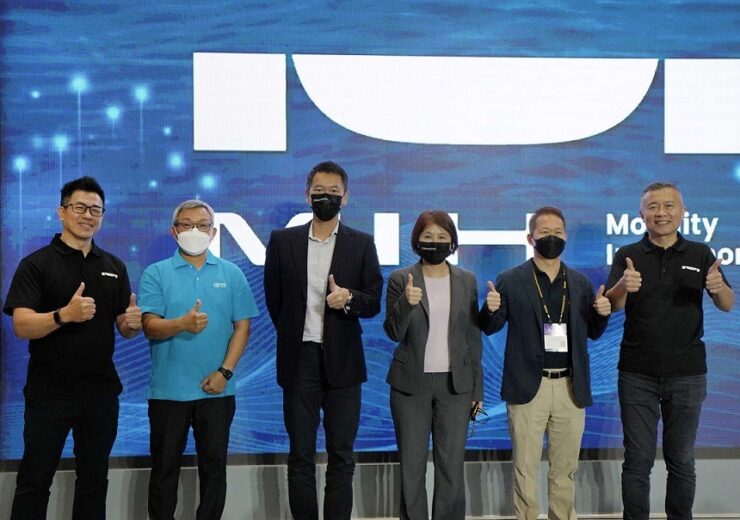The company has partnered with Foxconn’s MIH to speed up the transformation of the automobile industry

Microsoft joined MIH Consortium as one of the partners at the inaugural 2035 E-Mobility Taiwan Exhibition. (Credit: Microsoft Taiwan)
Microsoft has unveiled new cloud and Internet of Things (IoT) solutions for electric vehicles in Taiwan.
The solutions, which are introduced at the inaugural 2035 E-Mobility Taiwan Exhibition, are aimed at further unlocking the cloud computing potential for the rapidly growing smart mobility industry.
According to Microsoft, the latest innovations highlight its partnership with MIH Consortium (MIH) to speed up the transformation of the automobile industry from individual hardware manufacturing to software solutions collaboration.
The partnership will provide secure and innovative cloud-native solutions to the industry, leveraging Microsoft’s cloud service Azure.
Microsoft’s cloud computing is expected to support MIH Marketplace’s in four major categories that include V2G (vehicle to grid) in support of energy management, pipeline management, dataset management, and in dashboard service – Driver Viewer.
With Azure IoT Central, enterprises will be able to obtain real-time images, optimise performance, and improve development agility with machine learning modules, container registry, and DevOps.
MIH is Foxconn’s electric vehicle (EV) software and hardware open platform.
At the 2035 E-Mobility Taiwan exhibition, MIH CEO Jack Cheng has unveiled the Open EV Software Platform in close partnerships with Arm, Microsoft and Trend Micro.
Initially, the platform will focus on enabling automotive developers to create applications with smartphone-like development experience on the cloud.
As part of the partnership with MIH, Microsoft Azure is expected to offer advanced cloud computing technologies to create new experiences and application development for the Open EV Platform.
The Open EV Platform is expected to enable parallel software and hardware development, avoiding the need to rebuild the whole vehicle from the bottom up.
Cheng said: “In the next generation of mobility, user-centricity is the key. To enable developers to innovate and create great user experience and applications, we must work towards a Software-Defined Vehicles future by realizing the Open EV Platform vision.
“MIH is powered by the members in our Open EV Alliance. Together, we will build the next generation of mobility to transform the automotive industry.”
With its multi-layered, built-in security controls and threat intelligence, Microsoft Azure protects drivers, and passengers’ personal data to address cybersecurity issues in the electric vehicle ecosystem.
Azure’s high-performance computing (HPC) is also expected to allow MIH to develop algorithms and simulation-driven Advanced Driver-Assistance Systems (ADAS) for the digital transformation of ecosystem research and development.
MIH chief technology officer William Wei said: “Microsoft Azure empowers MIH to accelerate the development of Open EV Platform. Its flexibility and cloud services provide stable development environment to enable cloud-based automotive software ecosystem and global deployment of applications to Software-Defined Vehicles (SDV) in the future.”


